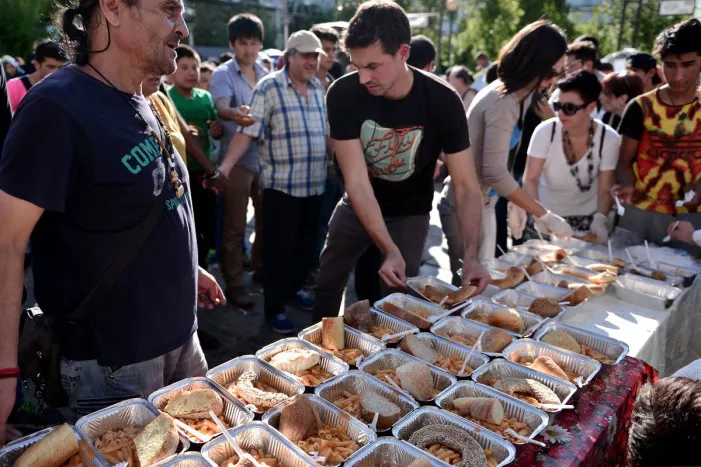Gaza, home to over 2.2 million people, is grappling with an unparalleled food crisis, and the risk of famine is intensifying daily amid the ongoing conflict between Hamas and Israel, warns a deeply troubling report released on Thursday.
The report, issued by the Integrated Food Security Phase Classification (IPC) in collaboration with global agencies, including the U.N., underscores the urgent need for an immediate reduction in hostilities and increased humanitarian access to avert a “realistic chance” of starvation.
“This is the highest share of people facing high levels of acute food insecurity that the IPC initiative has ever classified for any given area or country,” stated the report.
On December 8, the report indicated that more than 40% of the region’s population is in an emergency food scarcity phase, with over 15% in a catastrophe phase. The IPC’s final phase following catastrophe is famine.
Famine, characterized by daily reports of deaths from starvation or malnutrition, has only been declared twice in the past 12 years, as per the IPC – in parts of southern Somalia in 2011 and in parts of South Sudan in 2017.
Arif Husain, Chief Economist and Director of Research at the U.N. World Food Programme, expressed deep concern, stating, “This report sort of confirms our worst fears. I’ve been doing this for the last 20 plus years. I’ve been to Afghanistan, I’ve been to Yemen, to Syria, South Sudan, Ethiopia, northeast Nigeria. But I’ve never seen something this bad happening this quickly.”
International aid agencies have reported severe shortages of food, medicine, and other basic supplies in Gaza, attributing these conditions to the 2 1/2-month war between Israel and Hamas. The situation has led to distressing scenes, such as Palestinians lining up for free meals in Rafah, Gaza, as the region faces a dire humanitarian crisis.
The IPC report stresses the critical need for immediate international intervention to address the unfolding catastrophe and prevent further loss of life in Gaza.
























